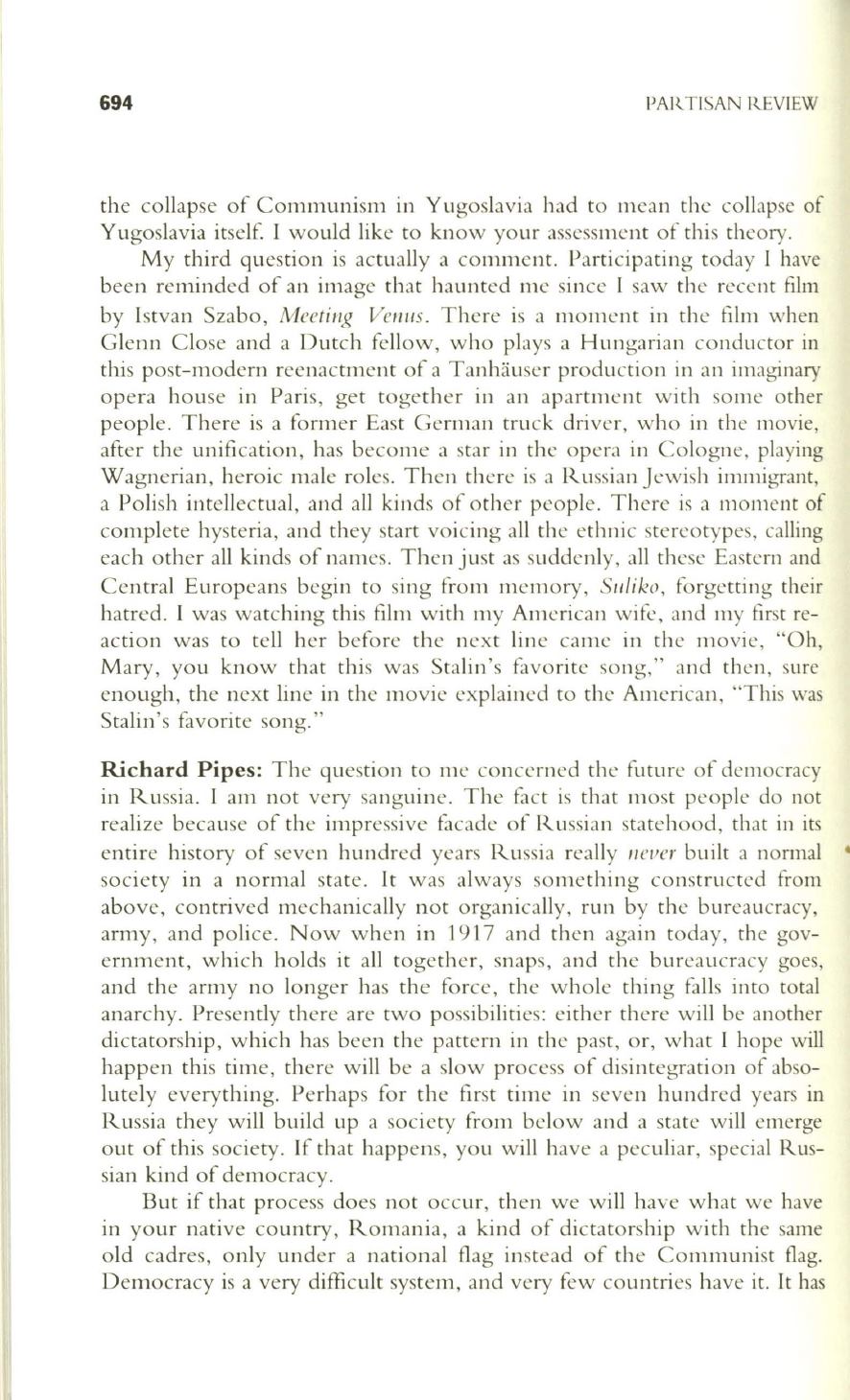
694
PARTISAN REVIEW
the collapse of Communism in Yugoslavia had to mean the collapse of
Yugoslavia itself. I would like to know your assessment of this theory.
My third question is actually a comment. Participating today I have
been reminded of an image that haunted me since I saw the recent film
by Istvan Szabo,
Meetillg Veil liS.
There is a moment in the film when
Glenn Close and a Dutch fellow, who plays a Hungarian conductor in
this post-modern reenactment of a Tanhauser production in an imaginary
opera house in Paris, get together in an apartment with some other
people. There is a former East German truck driver, who in the movie,
after the unification, has become a star in the opera in Cologne, playing
Wagnerian, heroic male roles. Then there is a Russian Jewish immigrant,
a Polish intellectual, and all kinds of other people. There is a moment of
complete hysteria, and they start voicing all the ethnic stereotypes, calling
each other all kinds of names. Then just as suddenly, all these Eastern and
Central Europeans begin to sing from memory,
SlIliko,
forgetting their
hatred. I was watching this film with my American wife, and my first re–
action was to tell her before the next line came in the movie, "Oh,
Mary, you know that this was Stalin's favorite song," and then, sure
enough, the next line in the movie explained to the American, "This was
Stalin's favorite song."
Richard Pipes:
The question to me concerned the future of democracy
in Russia. I am not very sanguine. The fact is that most people do not
realize because of the impressive facade of Russian statehood, that in its
entire history of seven hundred years Russia really
lIeller
built a normal
society in a normal state. It was always something constructed from
above, contrived mechanically not organically, run by the bureaucracy,
army, and police. Now when in 1917 and then again today, the gov–
ernment, which holds it all together, snaps, and the bureaucracy goes,
and the army no longer has the force , the whole thing falls into total
anarchy. Presently there are two possibilities: either there will be another
dictatorship, which has been the pattern in the past, or, what I hope will
happen this time, there will be a slow process of disintegration of abso–
lutely everything. Perhaps for the first time in seven hundred years in
Russia they will build up a society from below and a state will emerge
out of this sociery. If that happens, you will have a peculiar, special Rus–
sian kind of democracy.
But if that process does not occur, then we will have what we have
in your native country, Romania, a kind of dictatorship with the same
old cadres, only under a national flag instead of the Communist flag.
Democracy is a very difficult system, and very few countries have it. It has


